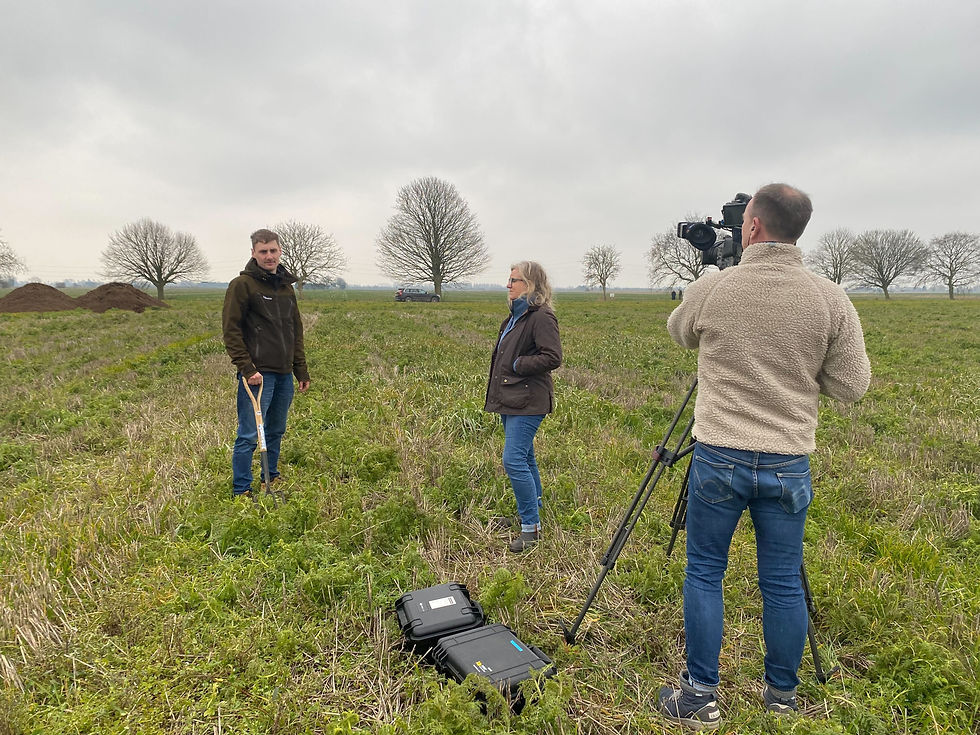Carbon capture and food production go hand in hand
- Thomas Gent

- Jul 10, 2022
- 2 min read

Farms hold significant potential to mitigate the effects of climate change. Farmers, the caretakers of our soil, can sequester and store atmospheric carbon by adopting regenerative agriculture practices.
But as world leaders and corporates trend toward net-zero climate targets, the natural capital benefits of UK farmland are attracting investors looking to enter the green economy.
As covered in BBC Countryfile this year, large companies and investors are purchasing vast areas of productive land and converting it to forestry. Tree planting has become an attractive investment opportunity with the potential for multiple income streams from wood, tourism, and of recent controversy among UK farmers – carbon credits.
Is what we are now seeing pitching smallholders against big business in a land grab to create climate neutrality? Ben Hawkins, a farmer from Pembrokeshire featured in the Countryfile episode, explained how investor interest in forestry is driving farmland prices out of reach for local farmers and threatening local jobs. He went on to address the issue of food security - “farmland is controversial because after all, we still need to eat”.
It doesn’t have to be that carbon removal efforts come at the cost of food production.
While planting trees to sequester carbon has been used as a primary climate mitigation measure for years, there is a way to grow healthy nutritious food alongside storing carbon. Regenerative agriculture provides that solution.

The purpose of regenerative farming practices is to increase the amount of arable topsoil - the soil which is fertile
and able to produce a healthier, more sustainable food system.
The benefits of these farming practices are multifaceted. In addition to sequestering carbon, biodiversity is increased above and below the soil, the soil’s water holding capacity is enhanced to strengthen drought and flood resistance, and most notably – farmers can continue to produce food.

As seen in Countryfile’s visit to our farm in Lincolnshire, my soil is rich with roots and worm life - the perfect environment for growing nutritious produce for our nation. With regenerative agriculture, businesses have a powerful opportunity to work with - not against - farmers and our food system.
With regenerative farming techniques, carbon capture and food production go hand in hand.
By Thomas Gent 4th generation regenerative farmer and the Head of UK at Agreena








Comments